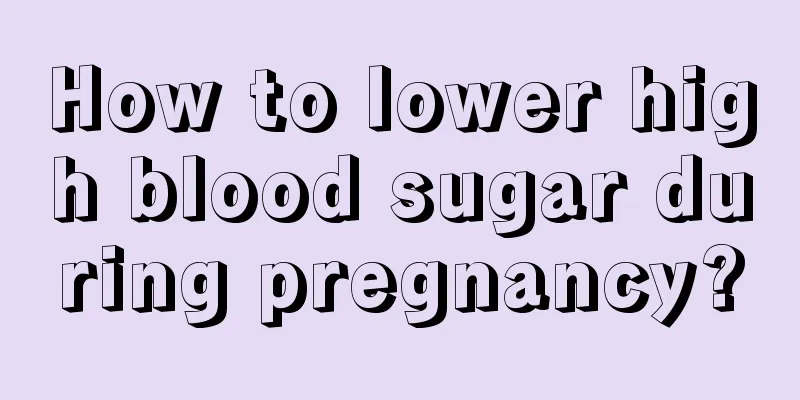Can you get pregnant if you have sex during the safe period?

|
The safe period is a time period that many people believe can help with effective contraception, but even during the safe period, there is still the possibility of pregnancy. Therefore, for women, they must always do a good job of contraception. In fact, there is no absolute safe period. 1. The safe period is not safe 1 Although the chance of pregnancy during safe period is low, it is not absolutely safe. This means there is a possibility of conception, so be vigilant. 2 The safe period refers to the period when couples avoid having sex during the fertile period before and after ovulation without using any contraceptive methods or surgery to achieve the purpose of contraception. But in fact, this method is not safe, because the time of female ovulation is affected by factors such as the external environment, climate, her own emotions, and health status, which may result in delayed or early ovulation, and extra ovulation may also occur. 3 In addition, there is no final conclusion on the longest survival time of sperm and eggs in the female reproductive tract. Therefore, the safe period cannot be calculated accurately, so it is unsafe to use the safe period for contraception. 4 Regarding the calculation of the safe period for women, it is said that the ovulation period is the first 5 days and the last 4 days starting from 14 days before the next menstruation, but depending on each person's specific situation, early ovulation or double ovulation may occur. 2. What is the safe period contraceptive method? 1 The basic principle of the safe period contraceptive method is to avoid sexual intercourse in the so-called unsafe period before and after ovulation, so that the egg and sperm have no chance to meet. The reliability of this method varies among different women. Its success depends on knowing the exact date of ovulation. Safe period contraception is a contraceptive method that stops sexual intercourse during the ovulation period. 2 A normal adult woman releases only one egg per month. Ovulation date is generally about 14 days before the next menstrual period. After the egg is released from the ovary, it can survive in the fallopian tube for 1-2 days, waiting for fertilization; sperm can survive in the woman's reproductive tract for 2-3 days. Sexual intercourse in the days before and after the egg is released makes conception very likely. To be on the safe side, avoid "natural" sex 5 days before and 4 days after ovulation, as well as 10 days including the ovulation day. 3 In theory, it is not easy to get pregnant at other times except the days mentioned above, so it should be safe. This is called the safe period. However, such calculations also involve risks, because women's cycles are greatly affected by the environment and emotions, and will change when encountering special events. If the safe period is divided into two types in a fixed way, it will become unsafe. The safe period must be used in conjunction with several other methods to be truly safe. For example: calculating based on the menstrual cycle, measuring basal body temperature and observing cervical mucus secretion. |
<<: What is the normal color of the areola?
>>: Can you eat ginger during confinement? Here are three things to tell you
Recommend
How can women protect their kidneys?
Many people think that protecting kidneys is a ma...
What causes stomach pain and bloody vaginal discharge?
Due to the complexity of their body structure, wo...
Moxibustion of the genital area for detoxification
We all know that the human body has many organs t...
Can taking birth control pills induce menstruation?
Many women have problems with delayed menstruatio...
Black vaginal discharge during ovulation
Abnormal leucorrhea is caused by vaginal diseases...
How to breastfeed with inverted nipples
For most mothers, nipple indentations are caused ...
The more you rest, the more your waist hurts. Beware of "spondyloarthritis"
Long-term low back pain, and the longer you stay ...
Why do women like to be touched privately?
Why do women like to be touched privately? During...
How to treat moderate cervical erosion?
Many female friends will suffer from cervical ero...
Sunbathing is a "technical job". It is good for your health and does not make you look old.
In early spring in March, everything comes back t...
What to do if breast milk is not nutritious
Many mothers choose to breastfeed their babies be...
What causes itchy belly after childbirth?
Many women experience itchy bellies when they are...
Which is more serious, breast hyperplasia or breast nodules
Many women tend to confuse breast hyperplasia and...
What's wrong with the left breast pain?
Women's breasts are quite attractive, especia...
Poor follicle growth
The health quality of follicles is closely relate...








![[Popular Science Lecture] Sometimes dizziness is caused by problems with your cervical spine](/upload/images/67f18bb38fe9b.webp)
